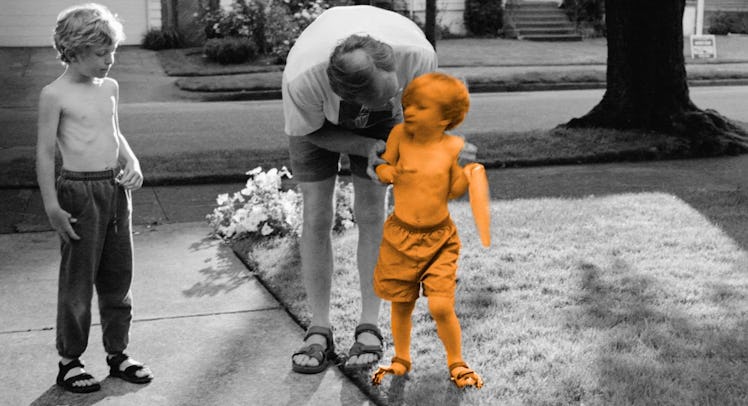Does Punishment Actually Work?
It entirely depends on what you mean by 'punishment.'

For many American parents, the word “punishment” evokes visions of children crying under the admonishing gaze of red-faced adults. These ideas of angry, tear-inducing retribution for misdeeds are tangled deeply in the nation’s Calvinist roots. After all, the first colonists rarely met a punishment they didn’t like, particularly when it came to children, whose mortal souls were in such peril that a brutal whipping was more admirable than an eternity in hell due to disobedience.
But at its core, punishment is a simple and useful psychological tool. It is the counterpoint to its more gallant sister: reward. Whereas reward is a mechanism that increases a behavior, punishment is a mechanism that decreases a behavior. As such it can be subtle, or it can be brutal. But it is not a punishment unless it decreases a behavior.
MORE: What is the Difference, Exactly, Between Crime and Punishment?
“If you think about punishment in a technical sense,” suggests Dr. Nancy Darling, Chair of Psychology at Oberlin College, “then raising my voice is a punishment.” But only if it changes a behavior. Which means much of the effectiveness of a punishment relies on the kid a parent is punishing, how and why the punishment is leveraged, and the expected outcomes after the punishment.
The most important point is that punishment should not erode the foundational relationship between a parent and a child. Punishments, or even threats of punishments, that threaten a child’s sense of safety, for instance, are particularly damaging and ineffective. So are punishments that are not tied to reasonable consistent rules.
RELATED: 11 Long-Term Benefits of Disciplining Your Kids
These types of punishments might lead to short term acquiescence, but it rarely lasts. “If you’re just trying to gain compliance then you need to assert power all of the time, which is exhausting,” says Darling. “And it does not work when you’re not there.”
Kids who are consistently punished just for the sake of compliance, without consistency or reason, will also become anxious. That’s because they will not know how to behave in the absence of external power, according to Darling.
So the real trick is in using punishment only when there are well established rules, based on values. “If you’re setting reasonable rules that your kid understands and are consistent, then most of the time they will do what they’re supposed to do,” says Darling. “Sometimes they won’t, because it’s a pain in the neck.”
When that happens, Darling suggests reminding kids about the legitimacy of your request. Parents should take some time to reminding kids that they have a duty to the family, like everyone else. If a child still decides to make a choice not to comply, then sometimes a punishment is necessary.
However, there should be no punishment without love, explains Darling. “The one thing that gives parents real power with their children is unconditional love,” she says. “They need to know, ‘I’m always here for you. I may be disappointed in you. I may be pissed off at you. But I always love you.’”
And that’s where reward should be applied. But reward does not have to be fawning praise, or medals or candy and toys, explains Darling. In fact, it can be as simple as heartfelt gratitude. And it works. But only if a parent uses the reward consistently. “It’s a habit,” Darling says. “We need to say thank you to our kids all the time. It’s not a big deal. That’s all you need for a reward.”
Read more of Fatherly’s stories on discipline, punishment, and behavior.
This article was originally published on